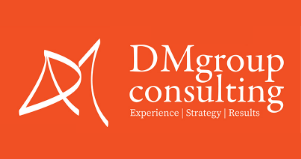Training board members effectively is key for any nonprofit’s success. Board members make important decisions, guide the organization’s mission, and ensure resources are used wisely. With the right training, these leaders can sharpen their skills and increase their impact.
Learning doesn’t have to be complicated or overwhelming. By using simple and proven methods, training can be both fun and effective. This approach not only boosts the skills of board members but also strengthens the entire organization. When board members feel confident and informed, they can contribute more effectively.
Empowering board members through effective training prepares them for the challenges and opportunities ahead. When they are well-equipped with knowledge and skills, board members can make smarter decisions that align with the organization’s goals. It’s all about making learning accessible and impactful, so board members can truly excel in their roles.
Utilizing Online Resources for Board Education
Online resources offer a convenient way to enhance board education. They provide a wealth of information that can be accessed at any time, making learning adaptable to everyone’s schedule. You can find a variety of materials online, including webinars, podcasts, articles, and e-books, which all serve as excellent tools for board member development.
Start by identifying the topics that are most relevant to your board’s needs. This might include governance, fundraising, or strategic planning. Educational platforms frequently offer curated content tailored to these areas. Regularly sharing these resources keeps your board informed and up-to-date with the latest trends and strategies.
Engage board members by suggesting they participate in virtual workshops or online courses. These interactive sessions offer practical knowledge and skills enhancement. Encourage members to come together after completing a course to discuss learnings and insights.
Creating a shared online repository can be beneficial. Use platforms like Google Drive or Dropbox to store educational materials and resources in one accessible location. This centralized hub acts as a go-to space for board members who want to revisit or explore new materials independently.
Implementing Short and Interactive Training Sessions
Short and interactive training sessions can significantly boost engagement and retention. These sessions break the learning into manageable parts, ensuring that board members stay focused and absorb more effectively.
Begin by setting clear objectives for each session. Define what you want board members to learn or develop. Sessions should not exceed an hour, as this concise format keeps participants attentive and enthusiastic. Consider incorporating interactive elements like group discussions or problem-solving activities that allow members to engage actively.
Utilize tools like quizzes or polls during sessions to gauge understanding and identify areas needing further discussion. This feedback helps tailor future training to better meet the board’s needs. Inviting guest speakers or facilitators who specialize in nonprofit management can also add excitement and depth to the session.
Encourage participation by fostering an open environment where members feel comfortable sharing ideas and questions. This collaborative approach enhances learning and allows board members to learn from each other’s experiences. By implementing these engaging sessions, you ensure continuous, effective board education that fits seamlessly into regular board activities.
Conducting Regular Skills and Knowledge Assessments
Regular skills and knowledge assessments help ensure board members are confident and capable in their roles. These assessments provide insights into areas needing development and highlight strengths that can be leveraged for the organization’s benefit.
Start by setting up a schedule for conducting these assessments, whether quarterly or semi-annually. This consistency helps track progress over time. Each assessment could focus on different aspects of a board member’s role such as leadership skills, financial acumen, or strategic thinking.
Consider using a mix of assessment methods. Surveys and quizzes can quantify knowledge and skills, providing a clear picture of where each member stands. Peer reviews add another layer, as they offer personal perspectives on collaboration and contribution.
After collecting data, review the outcomes with the board. Discuss individual and group results to create an understanding of what the team excels at and where improvement is needed. Use this information to develop targeted training sessions or mentorship programs.
Encouraging Peer Mentorship and Collaboration
Peer mentorship and collaboration build a supportive board environment where members learn from each other’s experiences and expertise. These dynamics strengthen the board and enhance its collective performance.
Introduce a mentorship program by pairing experienced board members with newer ones. This setup allows mentors to share valuable insights and practices that can help mentees settle into their roles more effectively. Regular check-ins and open communication are key to a successful mentorship relationship.
Foster collaboration through team-building activities or group projects that encourage board members to work together toward common goals. This cooperative spirit fosters a sense of camaraderie and mutual investment in the board’s success.
Create opportunities for peer feedback during meetings. Encourage members to offer constructive insights on each other’s ideas and proposals. This back-and-forth exchange broadens perspectives and improves decision-making processes.
Conclusion:
By implementing these strategies, your nonprofit board can become more knowledgeable and effective. Utilizing online resources, interactive training sessions, regular assessments, and fostering mentorship will enhance board member capabilities and boost confidence. These practices create a solid foundation for a thriving nonprofit board.
Embracing continuous learning and collaboration creates a board environment that adapts and responds to challenges with agility and confidence. The board’s development ultimately elevates the entire organization, making it more capable of achieving its mission.
Want to take your board’s performance to the next level? DM Group Consulting is here to help. With expertise in board training for nonprofits, we provide strategies that empower you to make meaningful progress. Contact us today to learn how we can support your board’s journey to excellence.




